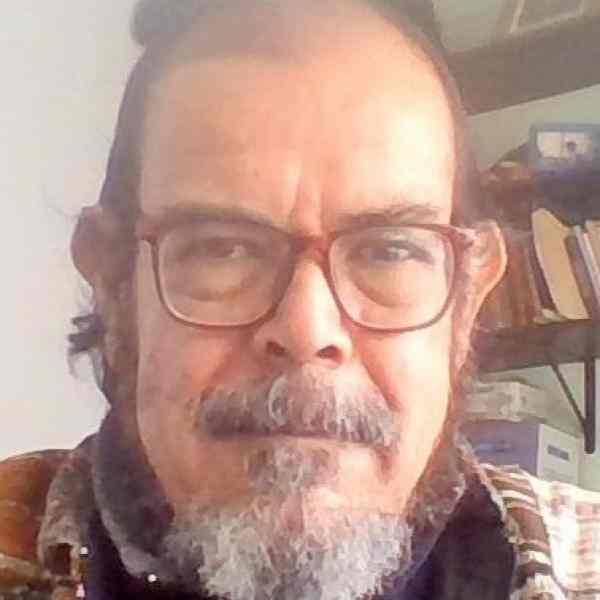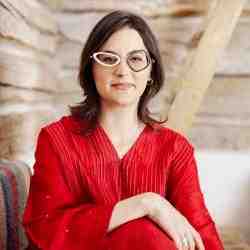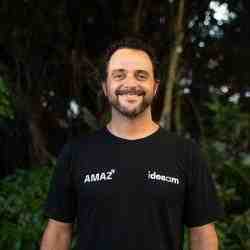Introduction
Francisco (Paco) Arroyo has devised an urban food production scheme which simultaneously improves low-income familiar nutrition and moves Mexico City's marginal neighborhoods toward taking ownership of their own development.
The New Idea
Paco is implementing a comprehensive urban food production plan in marginal barrios of Mexico City which rapidly improves familiar nutrition while fortifying the communities' capacity to collectively improve their economic and social well-being. After a long history of developing and innovating agricultural practices, especially in fertilizers and composts, Paco now has the ability to bring together many distinct elements into an integrated process. He has designed a simple machine that cuts and turns tires inside out. These tires are used as pots for food production. By turning the tire inside-out he has managed to increase the volume by 150% and achieve 40% more sun exposure. Two complementary components of using tires for urban food production is the creative "re-use" of some of the millions of tires that surround Mexico City, and the promotion of a "recycling culture." Besides recycling tires and used pots, the urban food production system proposes debris and food garbage composting and saving water by using human urine as a fertilizer. This system includes an environmental education component based on proximity, respect and acknowledgment of natural cycles. This system also improves nutritional health levels of families because the food is grown without any chemicals: it is 100% organic. The project includes a creative financial scheme based on vermiculture through which Paco can effectively introduce his urban agriculture model to poor communities in a way that is consistent with his anti-dependency development methodology. With the financial resources obtained by marketing vermi-compost, Paco finances a nursery of young plants and transportation of pots, soil and plants to the neighborhoods. The system is spread among pre-existing social and neighborhood organizations through the links Paco establishes. By doing so, he strengthens the participating groups' internal organization, the participation of women and children and associates his project with other current practices developed among the organizations. Paco is committed to investing in training to the extent that families and communities can continue to manage and improve their food production units without depending on his or others' technical expertise.
The Problem
Forty million of people live in poverty and nearly 50% of all Mexicans do not reach the minimum international diet standards. There are problems for supplying healthy, sufficient and economical products from the country to the city, and there is a growing demand that the current market system cannot satisfy efficiently. In Mexico City the unemployment and sub-employment problems and low incomes are becoming worse.
In Mexico City several neighborhood organizations have clearly identified the deficiencies in family diet and environmental problems that garbage generates. Many have been the attempts to solve some of these problems: alimentary deficiency, employment generation or environmental problems- but they are isolated intends and without a systematic and multidimensional focus like the system Paco is putting into practice.
The Strategy
Through different existing networks and neighborhood organizations in marginal areas of Mexico City, Paco has developed creative partnerships to introduce and spread his project. Contrary to most projects that begin their work in an isolated way, Paco opted for initial collaboration with other previously existing groups working in health, cooperative supply or community promotion.
Once the relationship is established, he presents the system and technology and, as soon as families are interested, he organizes the distribution of buckets, tires and young plants while at the same time as he developing a training program, until finally each family completes a minimum module of 10 buckets and 3 tires. He has developed four training sessions which, by their completion, allow the families to not only care for their own food units but to train other families in the barrio.
Another remarkable aspect of the strategy consists in the ability of capitalize unexpected elements as red worms (Eisenia foetida). By producing and selling these worms, families subsidize the module's costs, absorbing only the 20% of the total. The complete module costs US$20.00 but each family only pays $4.00 with the commitment to care for a new batch of worms to be sold later.
As part of the project there is also a 3,200 m2 piece of land in Xochimilco, that operates as nursery, gathering center, research, experimentation and training center. Paco produces handbooks for food production, composting, and worm-raising.
Work is currently being carried out in 17 neighborhoods simultaneously. Within the last six months, Paco has established communication with 600 families, 400 of who have already initiated food production in their homes. In short term (within the next 12 months) Paco proposes to reach 50 families in each of the 30 neighborhoods he is working now to have their minimum module as well as waste separation, composting and worm raising system. Through new partnerships with existing organizations and community leaders he will replicate the system to at least 60 other neighborhoods.
Paco has a long-term strategy for spreading his idea, which has the potential to dramatically impact urban food production in many megalopolises around the globe. By identifying natural leaders through the training sessions within the communities, he encourages them to spread their knowledge by acting as demonstration sites and trouble- shooters for their neighborhoods. Paco's benchmark for successful integration in a neighborhood is the community's interest and ability to establish their own collective nursery, thus becoming a fully functioning, autonomous urban agriculture scheme. One community has already taken significant steps in this direction.
The Person
Paco is a sensitive, curious and creative person who was marked by the extreme poverty that exists in rural communities and its consequences of malnutrition, lack of health services, education, etc., during the period he was doing Agronomy studies. This exposure drove him to reach technological alternatives to improve the soil and crops' fertility. He adopted a deep commitment to the most needy human populations. He has scientific curiosity and a deep environmental consciousness. By integrating multiple aspects of his model, he could become a pioneer in this field in Mexico, with great potential to solve food problems of low-income populations.



